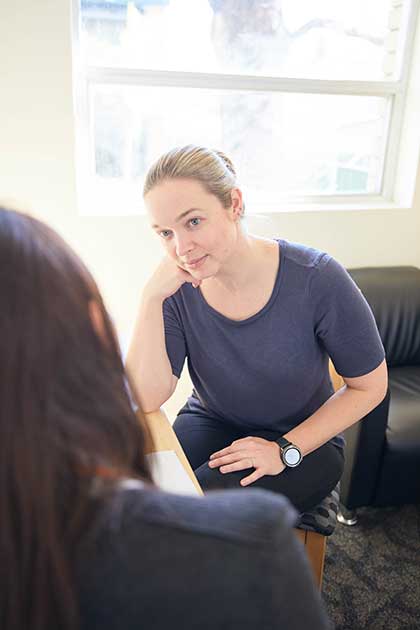New OCD treatment option available in Sydney
St John of God Burwood Hospital, in Sydney, NSW, is introducing a new group-based treatment program for people experiencing obsessive compulsive disorder (OCD).
4 Mar 2020

4 March 2020
Obsessive-compulsive disorder (OCD) can have a significant impact on quality of life1 and people often don’t seek treatment for years2. For those who do seek treatment, specific and targeted services available are often limited.
To meet this need in Sydney, St John of God Burwood Hospital is now offering a new group-based OCD treatment program at its Counselling and Therapy Centre.
About the program
St John of God Burwood Hospital Psychologist David Cooper said the new program had been designed to reflect up-to-date research on the best practices for psychological treatment of OCD, integrating several components of cognitive behaviour therapy (ERP, CT, ACT) that have been tested and shown to be effective in helping people with OCD to overcome their symptoms3,4.
As a day program, patients receive a full day of treatment at the centre every week for 15 weeks. Each week will introduce skills to overcome their symptoms, then patients are able to practice these skills in interactive workshops run by two psychologists.
Benefits of group program
Mr Cooper said that although individual therapy for OCD can be effective, the group-based format offers several benefits:
- First, it allows people who live with OCD to meet and normalise their symptoms. The program is designed to accommodate a variety of OCD themes (for example, washing, checking, “unacceptable” thoughts, need for order/symmetry).
- Second, the full-day allows for significant time to problem-solve strategies and to practice new learning with the support of clinicians. This is rarely an option in traditional individual therapy.
- Third, meta-analytic evidence across a range of research trials shows that a group-based format delivers the equal symptom improvement to individual therapy for OCD3.
Eligibility
To ensure suitability, all clients must have a primary diagnosis of OCD and meet limited screening criteria.
For more information, contact us on (02) 8746 4400 or [email protected].
References
1. Coluccia A, Fagiolini A, Ferretti F, et al. Adult obsessive–compulsive disorder and quality of life outcomes: A systematic review and meta-analysis. Asian J Psychiatry. 2016;22:41-52. doi:10/ggc54t
2. Albert U, Barbaro F, Bramante S, Rosso G, De Ronchi D, Maina G. Duration of untreated illness and response to SRI treatment in Obsessive-Compulsive Disorder. Eur Psychiatry. 2019;58:19-26. doi:10/ggc7k5
3. Öst L-G, Havnen A, Hansen B, Kvale G. Cognitive behavioral treatments of obsessive–compulsive disorder. A systematic review and meta-analysis of studies published 1993–2014. Clin Psychol Rev. 2015;40:156-169. doi:10/f3pjs8
4. Twohig MP, Whittal ML, Cox JM, Gunter R. An initial investigation into the processes of change in ACT, CT, and ERP for OCD. Int J Behav Consult Ther. 2010;6(1):67-83. doi:10/ggm97t
You may be interested in

